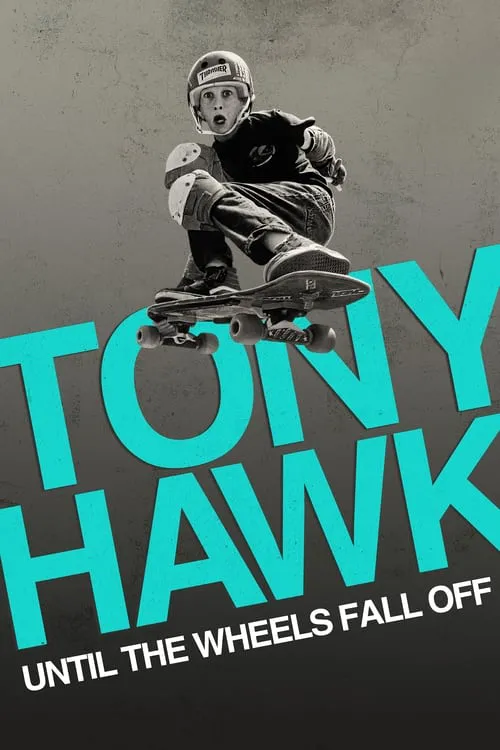Tony Hawk: Until the Wheels Fall Off

Plot
Tony Hawk: Until the Wheels Fall Off is a deeply personal and intimate documentary that delves into the life and career of skateboarding legend Tony Hawk. Directed by Sam Jones, the film offers an unparalleled look at Hawk's journey, from his humble beginnings in San Mateo, California to his status as one of the most iconic figures in the world of action sports. The documentary opens with Tony Hawk as a young boy, fascinated by the skateparks that had recently appeared in the suburban areas of Northern California. It was the early 1970s, and skateboarding was still in its nascent stages, but for Hawk and his friends, it was already a full-fledged passion. The film's early scenes showcase the skateparks of California, filled with the noise of grinding wheels, the laughter of friends, and the unmistakable feeling of a community united by a shared love of skateboarding. As Hawk's story unfolds, so too does the story of the sport itself. Skateboarding was always about experimentation, creativity, and pushing the boundaries of what was thought possible. Through interviews with prominent figures in the sport, including Stacy Peralta, Rodney Mullen, and Steve Caballero, the film highlights the key players who helped shape skateboarding into the global phenomenon it is today. One of the most compelling aspects of Tony Hawk: Until the Wheels Fall Off is its exploration of the sport's dark side. Duane Peters, a pioneering skateboarder who has struggled with addiction and mental health issues, opens up about his own struggles and the toll that the early days of skateboarding took on his life. This honest portrayal adds depth and nuance to the film, reminding viewers that the world of skateboarding is not just about thrills and excitement, but also about vulnerability and resilience. For years, Tony Hawk has been synonymous with skateboarding. His name has become synonymous with the sport, and his influence has helped propel skateboarding into the mainstream. And yet, as the film shows, Hawk's relationship with skateboarding is complex and multifaceted. He has been driven by a deep passion for the sport, but he has also struggled with the pressure to constantly innovate and keep pushing the boundaries. Throughout the documentary, Jones uses an extensive array of never-before-seen footage to illustrate Hawk's career. From his early days as a young skater to his world record-breaking 900 at the 1999 X Games, the film shows us the highs and lows of Hawk's journey. We see him experimenting with new tricks, facing setbacks and injuries, and persevering through countless hours of practice and dedication. One of the most moving sequences in the film is Hawk's conversation with Stacy Peralta, one of his oldest friends and a fellow pioneer of the sport. The two men reminisce about their early days as skaters, sharing stories about the skateparks they frequented, the tricks they attempted, and the lessons they learned. It's clear that their friendship has endured through the years, despite the ups and downs of life and the ever-changing landscape of the sport. Tony Hawk: Until the Wheels Fall Off is more than just a documentary about a skateboarding legend. It's an exploration of the sport itself, a testament to the creative spirit and perseverance that defines it. The film reminds us that skateboarding is not just about individual achievement, but also about community, friendship, and the shared experience of pushing oneself to new heights. Ultimately, the film is a fitting tribute to Tony Hawk's remarkable career, as well as a reflection of the spirit that has driven him for decades. As Neil Blender, another skateboarding legend, notes, "Tony's not just a skater, he's a symbol of the sport." Tony Hawk: Until the Wheels Fall Off is a testament to that symbol, a celebration of the power and beauty of skateboarding that will leave audiences inspired, energized, and eager to hit the streets themselves.
Reviews
Recommendations




